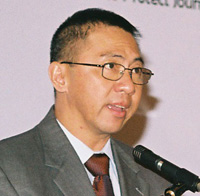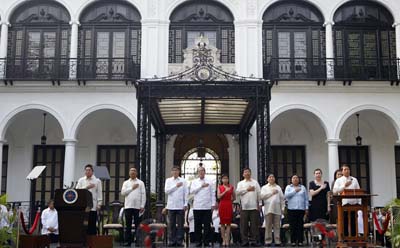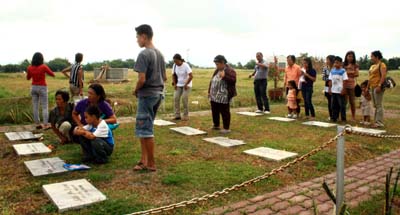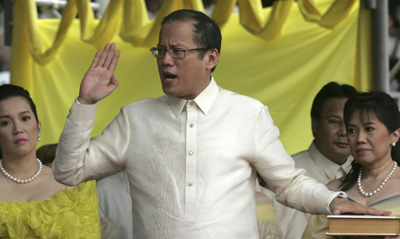Audio report: Impunity on trial in the Philippines
In our special report, “Impunity on trial in the Philippines,” CPJ examines the troubled prosecution of defendants in the 2009 massacre of more than 30 journalists and media support workers in Maguindanao province. Among other problems, CPJ found that local investigators mishandled forensic evidence and failed to cooperate with federal prosecutors. Listen to the mp3…

Remembering Philippine prosecutor Leo Dacera
Leo Dacera, a senior state prosecutor and head of the witness protection program for the Philippine Department of Justice, died suddenly on November 4. Initial news reports said Dacera, 54, left, was the victim of an apparent heart attack. Dacera’s untimely death is a tremendous blow to all those seeking to end the culture of…

Despite fatal shootout, Philippines officials meet with CPJ
About 18 hours after eight hostages and the gunmen holding them in a tourist bus were killed in a shootout with police in the heart of Manila, officials broke away from the demands of the moment to meet with a CPJ delegation in the president’s offices at Malacañang Palace. Justice Secretary Leila de Lima was…
CPJ meets Philippine officials, urges anti-impunity policies
Manila, August 24, 2010–Nine months after the killing of 32 journalists and media workers in the southern Philippines, a delegation from the Committee to Protect Journalists met today with justice officials in Manila and called on the government of President Benigno Aquino to address pervasive impunity in the recurring murders of journalists in the country.

From grief of Maguindanao, a ‘family’ emerges
Today marks nine months since the Maguindanao massacre, the deadliest event for the press that CPJ has ever recorded. On November 23, 2009, at 10 a.m., a convoy traveling to the provincial capital of Shariff Aquak to file gubernatorial candidacy papers stopped at what appeared to be a routine military checkpoint. Hours later, authorities would…

‘Litmus test’ begins in Maguindanao prosecution
A judge’s decision today to set a September 1 trial date for several defendants in the Maguindanao massacre highlights a positive development in what has been a very ugly story. The judge appeared determined to move the case forward and, for now, seemed able to keep the large legal teams in line. Quezon City Regional Trial…
Trial date set in Philippines massacre of 57
Manila, August 17, 2010–The opening trial date for 17 men accused of murder and other crimes in the killing of 57 people–32 of them journalists or media workers–in southern Philippines in November 2009 has been set for September 1. Quezon City Regional Trial Court Justice Jocelyn Solis-Reyes set the date in a pre-trial hearing in the…
Police give conflicting statements in Philippine killing
New York, August 3, 2010—Conflicting public statements by the police in Bicol province in the Philippines have complicated the investigation into the death of part-time radio reporter Miguel Belen, who was shot on July 9, the Committee to Protect Journalists said today. Police should publicly clarify their findings, CPJ said.

To combat Philippine impunity, Aquino needs new tactics
It’s too soon to expect a turnaround in the Philippines’ miserable record of attacks on journalists. President Benigno Aquino was sworn in just two weeks ago. The problem of unprosecuted journalist murders—the Philippines ranks third on CPJ’s Impunity Index—is embedded in a political culture of widespread violence and little law enforcement. That hasn’t changed, and…
